Graham Reid | | 4 min read
Bruce Cockburn: Lovers in a Dangerous Time (from Stealing Fire)

Most people looking at the life of
Bruce Cockburn come away saying the same thing: “You mean he made
music as well?"
Canadian singer-songwriter Cockburn has
his biography punctuated by stories about being in Mozambique while
snipers were out, getting drunk in Kathmandu, travels through nervous
Central and South American regimes . . .
Cockburn gets around - he came to New Zealand in ‘83 and ‘89 -- and he made albums along the way, about 25 since 1970 by my reckoning. And you wouldn’t want to miss any of
them once you were into him.
This was one jazz-influenced
folk-rocker who was always interesting at the very least and often
great. If I Had a Rocket Launcher, written after seeing a Guatemalan
helicopter attack on a refugee camp in southern Mexico, is still
worth hearing. Perhaps even more so.
He writes sharp postcards that capture
moments in Japan or Berlin or wherever he has been. There are raw
political questions in songs such as Guerrilla Betrayed and Rumours
of Glory . . .
The list of great Cockburn songs goes
on.
His lean lyrics nail images or ideas stone hard. And increasingly his guitar playing drew comparisons with Richard Thompson, who came through the same folk-to-rock background.
He’d also throw in thoughts from his
particular angle on Christianity. Rose Above the Sky is a tortured
suicide meditation on the failed spirit.
Yep, Cockburn deals up a lot of stuff
all right -- and his first 15 years once he hit his stride is worth rediscovering.
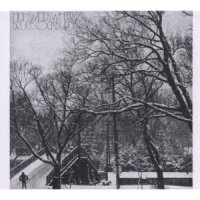 High Winds White Sky (’7l) was his
second album and came out when he was starting to pick up annual
awards as folk singer of the year in Canada. So it’s very folk and
goes from Happy Goodmorning Blues at one end - the title tells you
enough - to the American zen of the title track. His style got harder as the decade
progressed and by ’77 he really hit a pace. He’d got harder
philosophical religion, practical politics and an electric band
together. It was a great combination.
High Winds White Sky (’7l) was his
second album and came out when he was starting to pick up annual
awards as folk singer of the year in Canada. So it’s very folk and
goes from Happy Goodmorning Blues at one end - the title tells you
enough - to the American zen of the title track. His style got harder as the decade
progressed and by ’77 he really hit a pace. He’d got harder
philosophical religion, practical politics and an electric band
together. It was a great combination.
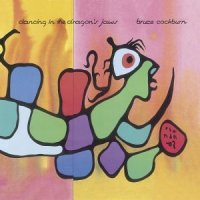 Dancing in the Dragons Jaws (’79)
contains the almost-hit Wondering Where the Lions Are, which, he
explained in concert here, was written when his brother-in law (a
radio-monitoring spy) came over one night and told him all radio in
China had been silent for days. People in high places were getting nervous, he said.
Dancing in the Dragons Jaws (’79)
contains the almost-hit Wondering Where the Lions Are, which, he
explained in concert here, was written when his brother-in law (a
radio-monitoring spy) came over one night and told him all radio in
China had been silent for days. People in high places were getting nervous, he said.
The album, with its big acoustic sound,
still stands up. There’s the slashing drum behind the mystical
Hills of Morning and a fat beat under the piano/guitar foreground of
After the Rain. The songs mostly mostly grapple with tough ideas in a
tough faith.
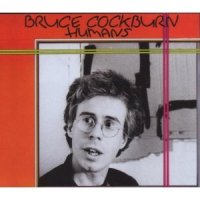 Humans of the following year goes
another way: into politics (direct action of the faith) and the price
of failure in faith. It's the one with Rose Above the Shy, the eerie
travelogues of How I Spent My Fall Vacation and Tokyo, and Guerrilla
Betrayed with the anti-terrorist Grim Travellers.
Humans of the following year goes
another way: into politics (direct action of the faith) and the price
of failure in faith. It's the one with Rose Above the Shy, the eerie
travelogues of How I Spent My Fall Vacation and Tokyo, and Guerrilla
Betrayed with the anti-terrorist Grim Travellers.
As good was Trouble with Normal of ’82. Having an established band helped, and Candy Mans Gone has a huge rolling melody. The standout track is Hoop Dancer, where, in a massive talk-sing vocal over a disconcerting violin and percussion part, he tries to look beneath the random urban energy to find ancient patterns.
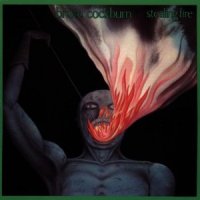 Stealing Fire (’85) is more than just
confident: it swaggers in on Cockburn’s battle-hardened lyrics.
He’d seen the helicopter attack (If I Had a Rocket Launcher is
here) and he knew what he knew. He was angry and on to it. Maybe the Poet is a juju guitar
jazz-rock salute to the poets of the Sandinista revolution. Travels
through scar tissue and gun culture regimes in South America appear
on Lovers in a Dangerous Time, Nicaragua and Dust and Diesel. And
Peggy's Kitchen Wall isn’t about snapshots on the family
noticeboard: it’s about the bullet holes there. And if Trouble with
Normal had the Big Picture, this had the Big Sound to go with it.
Stealing Fire (’85) is more than just
confident: it swaggers in on Cockburn’s battle-hardened lyrics.
He’d seen the helicopter attack (If I Had a Rocket Launcher is
here) and he knew what he knew. He was angry and on to it. Maybe the Poet is a juju guitar
jazz-rock salute to the poets of the Sandinista revolution. Travels
through scar tissue and gun culture regimes in South America appear
on Lovers in a Dangerous Time, Nicaragua and Dust and Diesel. And
Peggy's Kitchen Wall isn’t about snapshots on the family
noticeboard: it’s about the bullet holes there. And if Trouble with
Normal had the Big Picture, this had the Big Sound to go with it.
World of Wonders (’86) includes the
cynical rock of Call It Democracy and another postcard, this time
from Germany as the Wall fell, which is as clumsy (“that
anal-retentive border wall") as it is hard-edged (“scratchy,
acid-bitten, transparent winter trees"). Most of the spiritual
questions are filaments in the lyrics.
Despite some plodding rock (People See
Through You), it is still a fine album. It had been a decade from
Dragon’s Jaws and he hadn’t made a bad album . . . he wasn't
about to with Big Circumstance, in ’89, which ranks among his very
best.
There is the heady booziness of Tibetan
Side of Town, how it felt to be in Cologne three days after Chernobyl
winds started blowing that Way (Radium Rain) and Down Where the Death
Squad Lives is about the constant goon-squad threat in parts of
Central America he’s seen.
Yes, indeed, Cockburn - now 65 and
still producing albums at the same quality-control rate,
is a serious contender, all right.
Step past the early stuff unless you
like your folk anxious and stranded in the early Seventies. Go straight for
the mature voice which began with Dancing in the Dragon's Jaw and Humans. You'll find Cockburn a road you won't want to get off after those two.

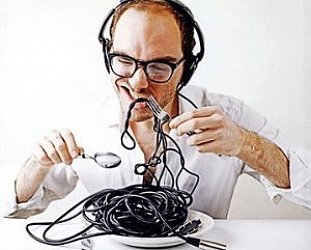
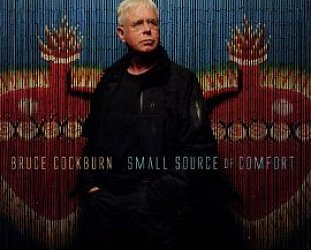
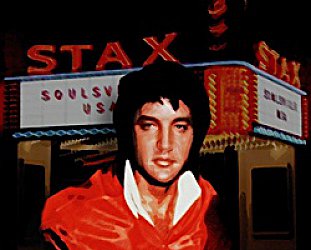
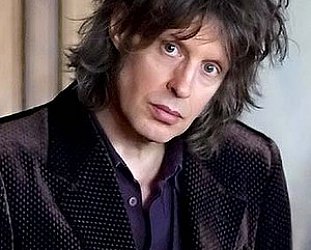
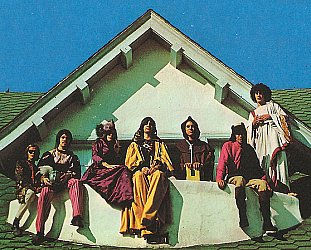

Paul - Dec 7, 2010
Thought "Nothing But A Burning Light" was a great album too.
SaveStaggers me how he has been kept below that radar for so many years. I agree - a great legacy of work and I never get tired of listening to him. Wish more did though!
With luck he'll grace our shores at least one more time...
Blair - Dec 11, 2010
He did a a pair of albums with T Bone Burnett producing which are well worth checking out also The Charity of Night from the mid '90s. He is an incredibly under rated guitarist - I think he is up there with Leo Keottke as an acoustic virtuoso.
Savepost a comment